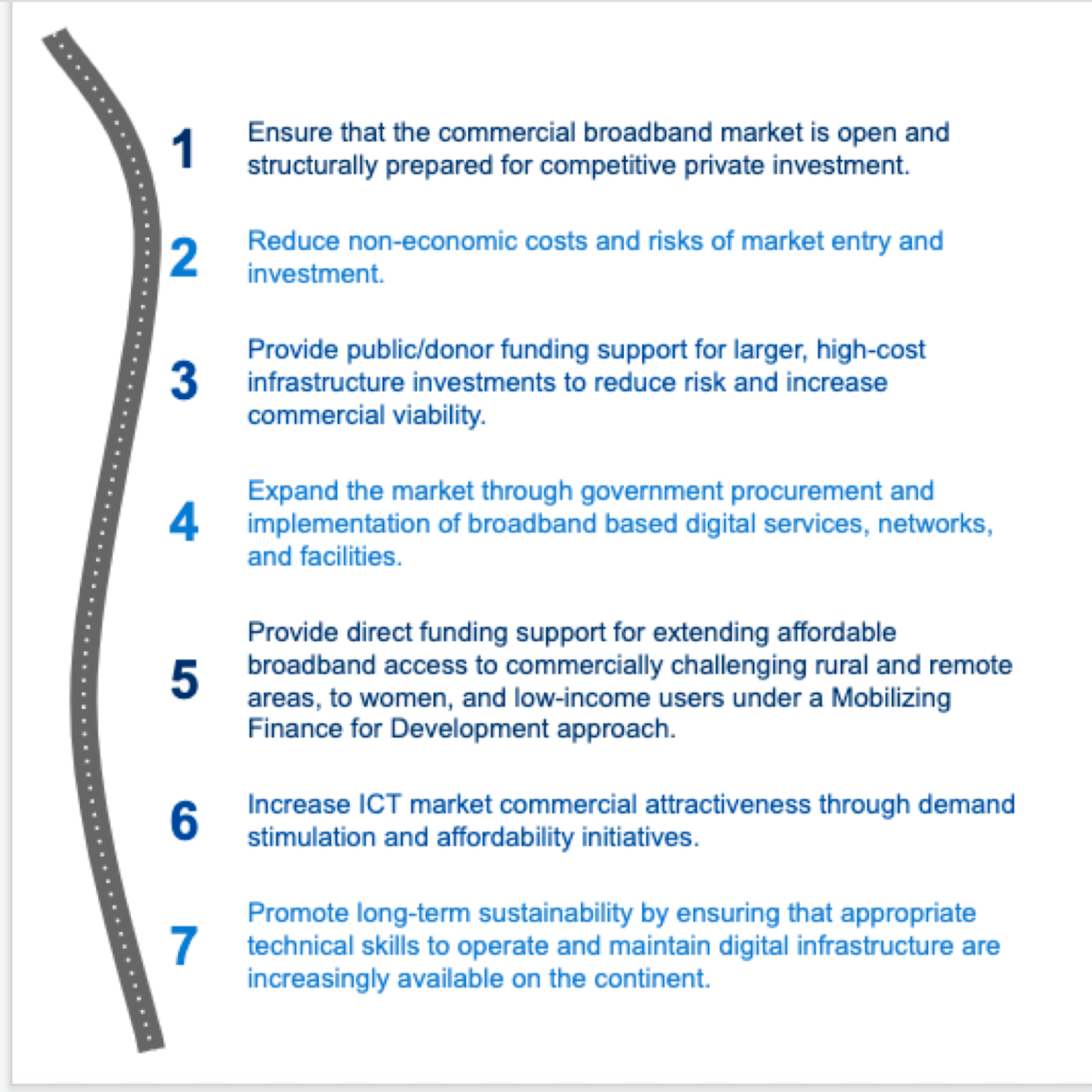This post was written by Maiko Nakagaki, Strategic Partnerships and Development Manager. Follow Maiko on Twitter @mn1207.
From small shopkeepers using mobile payment in Kenya to drones delivering urgent health supplies in rural areas in Rwanda, we have already witnessed the transformative impact that digital technologies and the digital economy have had on development in many African countries. Indeed, access to technology can support the achievement of several of the UN’s Sustainable Development Goals (SDGs) — including universal identification, more efficient delivery of government services, financial inclusion, and job creation. SDG Target 9.c. — to significantly increase access to information and communications technology and strive to provide universal and affordable access to the Internet in least developed countries (LDCs) by 2020— is therefore crucial not only in its own right, but in the role it can play in securing peace and prosperity for people and the planet.
While some progress has been made in Africa, many of the LDCs on the continent will miss the SDG target. As our research on mobile data pricing illustrates, the region is not close to achieving the UN’s ‘1 for 2’ threshold for internet affordability — defined as 1GB for no more than 2% average monthly income. In some countries, including the Democratic Republic of Congo, Chad, and the Central African Republic, the cost of 1GB data remains over 20% of the average monthly income — unaffordable for all but the wealthy few. Unsurprisingly, because of the high cost, the region has the lowest average internet penetration at around 24%, compared with 51% globally. These challenges must be addressed quickly and boldly if we are to reach the SDGs and ensure no one is left behind.
To this end, the African Union Commission and the World Bank Group are leading strategic efforts to transform Africa’s economies, societies, and governments to generate new economic growth and poverty reduction. An important pillar of these initiatives is achieving universal affordable access on the continent. A4AI served as a lead advisor to the World Bank for the Broadband Commission’s Working Group on Broadband for All: A Digital Moonshot Infrastructure for Africa. The working group was formed as a multistakeholder consultation group to engage key technology industry partners, estimate the investment needs, and prepare a roadmap to help countries, development actors, and the private sector accelerate and prioritize their efforts to help reach the SDGs by improving digital infrastructure in Africa.
Based on the findings and recommendations from the working group, A4AI supported the World Bank to produce Connecting Africa Through Broadband: A strategy for doubling connectivity by 2021 and reaching universal access by 2030. The report’s key findings are around the investments and policy and regulatory reform needed to achieve universal, affordable, and good quality access in North and Sub-Saharan Africa.
Based on our research, to double the current broadband connectivity rate by 2021, nearly 220 million new people must come online and an estimated $9 billion in investment is required to reach this penetration rate. In addition, nearly 1.1 billion new unique users must be connected to achieve universal, affordable, and good quality internet access by 2030, and an estimated additional $100 billion would be needed to reach this goal over the next decade. Investment in infrastructure development will be significant, for deploying 4G base stations and 250,000 kilometers of fiber, as well as rolling out satellites, Wi-Fi based solutions, and other innovations to reach populations in remote rural areas. Investment in basic digital skills will also be necessary, so that people have the ability to participate in their local digital ecosystem and increase relevant local content and knowledge.
Policy and regulatory reforms will be equally urgent once broadband networks are in place, to increase accessibility, awareness, affordability, relevance, safety, and security. Because affordability remains one of the main challenges in addressing the digital divide in Africa, device affordability must also be promoted through targeted public policies; supporting business models offering low-cost devices on the market; and engaging with the private sector and other partners to lower manufacturing costs for devices.
To guide countries through implementing the recommended investments and policies required to achieve universal, affordable access by 2030, the report outlines a broadband development roadmap. The roadmap features a sequence of key objectives as outlined in the chart below:

With estimated $109 billion in investments needed to achieve the 2030 target of universal access to affordable and good quality broadband, including the milestone for doubling connectivity by 2021, participation and active engagement from a range of stakeholders at the local, regional, and international level is needed.
A4AI is committed to continue working together with national, regional, and international partners to advance universal affordable access in Africa, and we look forward to working closely with other stakeholders to urgently make universal, affordable access on the continent a reality.
For more updates on our work, follow us on Twitter at @a4a_internet.
